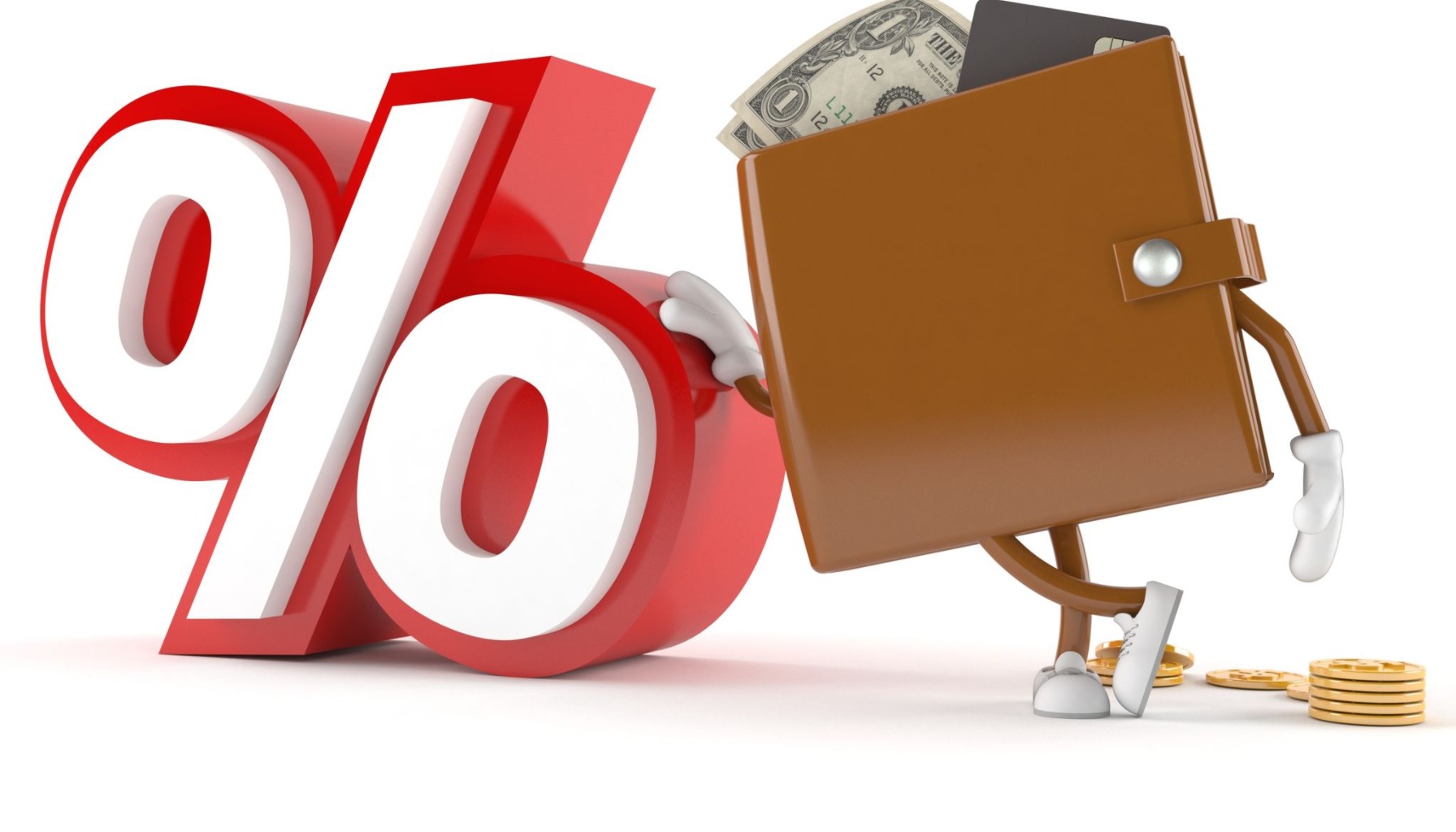The Federal Reserve is likely to cut interest rates in September, and you're probably wondering, “How will this affect me?” In short, the anticipated interest rate cut in September will likely lead to lower borrowing costs for things like credit cards and car loans, but it could also mean lower returns on your savings accounts. The stock market might get a small boost too. But before you start celebrating or panicking, let's dive into the details.
I know, talking about the Federal Reserve and interest rates can sound like something only economists care about. But trust me, this decision can have a real impact on your everyday life, from the interest you pay on your credit card to the return you get on your savings. As somebody who’s been closely watching economic trends for years, I’m going to explain how this potential rate cut could affect your money.
How Will the Interest Rate Cut in September 2025 Impact Your Wallet?
Why is This Even Happening?
First, let's understand why the Fed is considering cutting rates. The Federal Reserve has two main jobs: to keep prices stable (control inflation) and to keep unemployment low. Lately, inflation has been cooling down, but there are concerns about the job market slowing down too. Fed Chair Jerome Powell even talked about “downside risks” to employment. Cutting interest rates is one way the Fed can try to boost the economy and encourage businesses to hire more people.
Think of it like this: imagine the economy is a car. If it's going too fast (high inflation), the Fed taps the brakes by raising interest rates. If it's going too slow (high unemployment), the Fed steps on the gas by lowering interest rates to get things moving. They are trying to achieve the right balance for us all.
Borrowing Costs: Good News for Debtors?
One of the most immediate effects of an interest rate cut is on borrowing costs. This is where you might see some relief if you have certain types of debt.
-
Credit Cards: If you have a credit card with a variable interest rate (which most people do), you could see your APR (Annual Percentage Rate) drop within a couple of billing cycles. Even a small decrease can make a difference, especially if you're carrying a balance.
-
Auto Loans: If you're planning to buy a car, an interest rate cut could mean a slightly lower interest rate on your auto loan, saving you some cash over the life of the loan.
-
Mortgages: Mortgage rates are more complicated, as I observe that they are more closely tied to the 10-year Treasury yield than the federal funds rate. However, a rate cut could indirectly lead to lower mortgage rates, especially for adjustable-rate mortgages (ARMs). If you have a fixed-rate mortgage, you likely won’t see an immediate impact, but you could consider refinancing if rates drop significantly.
Here's a simple example: Let’s say you have a credit card with a $5,000 balance and an APR of 20%. A 0.25% rate cut might not seem like much, but it could save you around $12.50 per year in interest. Over time, those savings can add up.
Savings Accounts and CDs: Not-So-Good News for Savers
While borrowers might benefit from lower rates, savers could see their returns shrink. Banks typically respond to rate cuts by lowering the interest rates they offer on savings accounts, certificates of deposit (CDs), and money market funds.
-
Savings Accounts: Don't expect to get rich off your savings account. The average savings account APY (Annual Percentage Yield) is already quite low, and it could go even lower after a rate cut.
-
CDs: If you're looking for a slightly higher yield, CDs might be an option. However, keep in mind that you'll typically have to lock your money up for a specific period of time.
Here’s a key point: If you're serious about saving, shop around for the best rates. Online banks often offer higher yields than traditional brick-and-mortar banks. I have found that online accounts are highly fruitful and easy to maintain.
The Housing Market: A Little Boost?
The housing market is a complex beast, and there are many factors that influence it, including interest rates. A rate cut could make buying a home more affordable, potentially stimulating demand. However, it's not quite so simple:
-
Mortgage Rates: As I mentioned before, mortgage rates aren't directly tied to the Fed's rate. But they can be influenced by it. Lower rates could make it easier for people to afford a mortgage, potentially increasing home sales.
-
Home Prices: High home prices and limited inventory continue to be major challenges in many markets. A rate cut might provide a small boost, but it's unlikely to solve these underlying issues.
-
Refinancing: If you already own a home, a rate cut could be an opportunity to refinance your mortgage and potentially lower your monthly payments.
Investments and Stock Markets: Will Your Portfolio Get a Sweetener?
Historically, rate cuts tend to be favorable for stock markets. They're often seen as a sign that the Fed is trying to support economic growth, which can boost corporate profits and valuations. Sectors that are particularly sensitive to interest rates, like real estate and utilities, might see even bigger gains. So, there is a high potential for return. However, markets have a knack for being unpredictable.
Here's what to watch for: The Stock market gains could also depend on market sentiment and other economic factors. Don't assume that a rate cut will automatically translate into huge gains for your investment portfolio.
However, the impact on your individual investments may depend on many parameters, keep an eye on the following:
- Bonds – Bond value will increase as yields fall, benefiting bondholders since issues will yield less.
- Equities – Investments are generally boosted with growth stimulations.
The Bigger Picture: Economic Growth vs. Inflation
Ultimately, the Fed's decision to cut interest rates is aimed at supporting the overall economy. The goal is to encourage spending and investment, which can lead to job creation and economic growth. However, there are also risks to consider, most notably the risk of inflation. I believe that inflation can arise due to tariff influences.
Let's not go into very complex economic theories which are very hard to apprehend, but the primary risk the federal banks are trying to alleviate is economic recession.
-
Tariffs: Ongoing trade tariffs could put upward pressure on prices, potentially offsetting the benefits of lower interest rates.
-
Inflation: If inflation starts to rise again, the Fed might have to reverse course and raise rates, even if the economy is still weak.
The Fed is walking a tightrope, trying to balance the risks of slowing growth and rising inflation. Only future will tell the true economic condition.
What Should You Do?
So, what should you do in response to the likely rate cut? Here are a few things to consider:
- Review your debt: If you have high-interest debt, explore options for refinancing or consolidating it.
- Shop around for savings rates: Don't settle for a low APY on your savings account. Look for better options online.
- Consider your investment strategy: Talk to a financial advisor to make sure your portfolio is properly diversified and aligned with your goals.
- Stay informed: Keep an eye on economic news and updates from the Federal Reserve.
The potential interest rate cut in September is just one piece of the puzzle. It's important to stay informed and make smart financial decisions based on your individual circumstances.
Keep in mind that I'm not a financial advisor, so this information is for educational purposes only. Be sure to consult with a qualified professional before making any major financial decisions.
Position Your Portfolio Ahead of the Fed’s Next Move
The Federal Reserve’s next rate decision could shape real estate returns through the rest of 2025. Whether or not a rate cut happens, smart investors are acting now.
Norada Real Estate helps you secure cash-flowing properties in stable markets—shielding your investments from volatility and interest rate swings.
HOT NEW LISTINGS JUST ADDED!
Talk to a Norada investment counselor today (No Obligation):
(800) 611-3060
Recommended Read:
- Fed's Powell Hints at First Interest Rate Cut of 2025 in Jackson Hole Speech
- Jerome Powell and the Fed: 80%+ Chance of Interest Rate Cut in September
- Interest Rate Forecast for September 2025: Will Fed Cut Rates?
- Fed Holds Interest Rates Steady for the Fifth Time in 2025
- Fed Projects Two Interest Rate Cuts Later in 2025
- Interest Rate Predictions for the Next 3 Years: 2025, 2026, 2027
- When is Fed's Next Meeting on Interest Rate Decision in 2025?
- Interest Rate Predictions for the Next 10 Years: 2025-2035
- Will the Bond Market Panic Keep Interest Rates High in 2025?
- Interest Rate Predictions for 2025 by JP Morgan Strategists
- Interest Rate Predictions for Next 2 Years: Expert Forecast
- Fed Holds Interest Rates But Lowers Economic Forecast for 2025
- Fed Indicates No Rush to Cut Interest Rates as Policy Shifts Loom in 2025
- Fed Funds Rate Forecast 2025-2026: What to Expect?
- Interest Rate Predictions for 2025 and 2026 by NAR Chief
- Market Reactions: How Investors Should Prepare for Interest Rate Cut
- Impact of Interest Rate Cut on Mortgages, Car Loans, and Your Wallet




